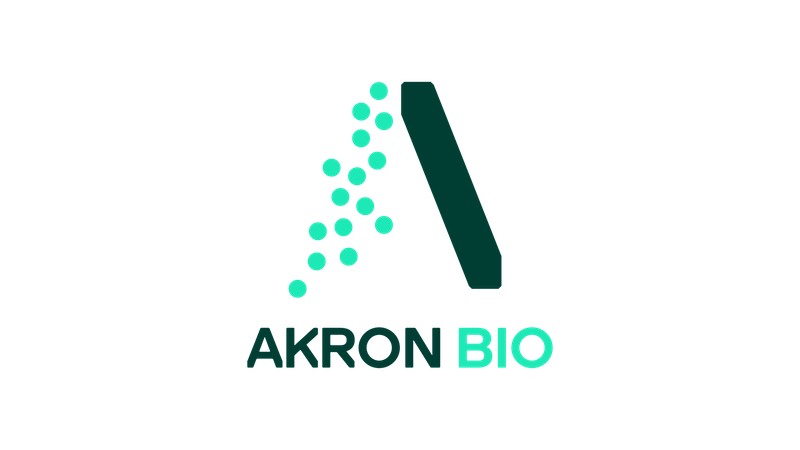Join this webinar to discuss the rapidly growing cell and gene therapy and vaccine markets, the resulting critical bottlenecks in plasmid (pDNA) production and how these bottlenecks are being addressed by collaborations and partnerships between some of the key contributors to the biomanufacturing supply chain.
Initially, pDNA was primarily used in academia and laboratory settings. Its role in the pharmaceutical industry originated in the production of therapeutic proteins, where most providers set their production dial to meet this demand. Now, however, the demand for pDNA in terms of scale and quality has been transformed by the rapid growth of the cell and gene therapy industry. Plasmid DNA is a critical ancillary material used in manufacturing these advanced therapies and this increase in demand has caused a bottleneck, since production and supply have not been able to keep up with demand.
The goal of this webinar is to provide a 360-degree view of the dynamic growth of the cell and gene therapy and vaccines market.
- The Advanced Therapy Revolution: Keeping Pace with Demand
The featured speakers will discuss the increased focus of pharma pipelines on advanced therapies (over 200 INDs in 2020 alone), including the perspective of pharma to highlight their needs and the impact of bottlenecks on their R&D programs. Paramount issues include capacity, scalability, quality and continuity in the manufacturing process. Topics to be considered include: the importance of cGMP pDNA as a key ancillary material in the modern biotech manufacturing, how to deal with the pressure, the increased demand for pDNA is placing on the manufacturing supply chain and the resulting bottlenecks and their impact on the cell and gene therapy industry including long waiting lists/backlogs for pDNA (six-12 months), stalled R&D pipeline progress, damage to the expectations of the market and of future patients.
- The Onus on Plasmid DNA Manufactures and their Partners: Increase Capacity/Scalability without Compromising Quality
Overview of the manufacturing process for adeno-associated virus (AAV) and highlight how Akron Bio’s new facility is designed to address the serious industry issues around capacity, scalability and quality. Discuss the cGMP quality controls and the full suite of pDNA-centered, in-house analytical development, qualification and validation capabilities. Highlight the key partnerships for genomic and proteomic characterization that are critical to ensure product quality and integrity through scale-up, as well as storage and cold-chain logistics to help increase capacity during scale-up. Take a closer look at full scale engineering and process validation capabilities enabling cGMP production, completion of clinical trials and approved therapy commercialization.
- The Regulatory Conundrum: Lack of a Clear Path for All to Follow
A central challenge is the expectation that pDNA should tie into the same quality progression that occurs with the drug product as it proceeds through R&D and full GMP production, even for raw materials that contribute to the generation of the final product but are not part of it. The speakers will consider the latest concepts and information from regulators on how pDNA quality should be assessed, creating a guideline for manufacturers to work to.
Register to learn about meeting the increasing manufacturing demands of the rapidly growing cell and gene therapy and vaccine markets.
Speakers

(Moderator) Ana Martini, PhD, Associate Director, Program Management, Akron Bio
Ana Martini, PhD, is the Associate Director of Program Management, for the Commercial Team at Akron Bio. Ana has been with Akron for over two and a half years and prior to joining the Commercial team in her current role, she led the Process Development team as the R&D Manager. Ana was involved in the launch of the new BioManufacturing site in April 2022, located in Sarasota, FL from its conception and is playing a key role in bringing the site to its current state. She has a depth and breadth of knowledge of the cell and gene therapy space, working closely with the Commercial Team to onboard and deliver on customer projects. Before joining Akron, Ana conducted cancer research as a postdoc, which included identifying a novel target for cancer therapeutics and developing a non-invasive diagnostic approach for early detection of small-cell-lung cancer. She earned her PhD from the University of Central Florida in biomedical sciences. She earned her bachelor’s degree from the University of Central Florida in molecular biology and microbiology where she also conducted research using E. coli as a model organism, which has been instrumental in building the capabilities of Akron’s BioManufacturing business.

Andrea O’Hara, PhD, Strategic Technical Specialist, Next-Generation Sequencing, Azenta Life Sciences
Andrea O’Hara is a Technical Specialist at Azenta Life Sciences and has over 13 years of experience in next-generation sequencing. She earned her PhD from the University of North Carolina at Chapel Hill in genetics and molecular biology and did her postdoctoral training at the National Institutes of Health.

Kurt Herzog, Director of Process Scale-up, AstraZeneca
Kurt Herzog joined AstraZeneca in 2017 and is currently the Director of Process Scale-Up. His team’s mission is large-scale production to support the technical transfer, process innovations and supply for the material demands of a variety of modalities that makeup the AstraZeneca pipeline. Prior to AstraZeneca, Kurt was in supporting roles within process development, tech transfer, manufacturing, engineering and MS&T.

Ian Hart, VP of Operations, Akron Bio
Ian Hart is the Vice President of Operations at Akron Bio and has over 30 years of experience in all phases of biologics manufacturing under US, Canadian, and EU cGMPs. Ian served as the director of R&D Manufacturing Sciences at AstraZeneca, where he was responsible for the clinical manufacturing of biological drug substances. Previously, he held roles of increasing responsibility within Aventis Pasteur (now known as Sanofi Pasteur), Nabi Biopharmaceuticals, and Biotest Pharmaceuticals. He has extensive experience in clinical and commercial manufacturing, tech transfer, scale-up, and facility startups. Ian received his BASc in Chemical Engineering with a minor in Management Sciences from the University of Waterloo and his MBA from the Schulich School of Business at York University.
Who Should Attend?
This webinar will appeal to preclinical and clinical researchers and study organizers at cell and gene therapy and vaccine companies.
What You Will Learn
- Manufacturing issues resulting from the growing demand for advanced therapies
- How the new manufacturing facility applies innovation to address the current bottleneck in the supply chain
- Capacity/scalability/quality
- Flexibility
- Integration
- Quality controls and quality testing delivered through partnerships (characterization/storage)
Xtalks Partner
Akron Biotech
Akron Bio drives advanced therapy development and commercialization with high-quality, industrial-scale solutions. Akron’s strategic focus is supplying cGMP-compliant ancillary materials and services to enable the advancement of cell and gene therapies. These include cytokines and growth factors, human sera and purified proteins, cryopreservation solutions, plasmid DNA manufacturing, and custom development services. In addition, our services and capabilities such as raw materials qualification, logistics and packaging optimization, bioassay design, validation, and regulatory services provide our customers with unique knowledge and expertise. As a regulatory-compliant company (ISO certified), Akron supports clients with rigorous documentation and quality standards to fulfill their regulatory demands. Our unique capabilities allow us to seamlessly transition from R&D to preclinical and clinical development with minimal change control and thus drive the emerging regenerative medicine sector to unmet clinical needs through affordable and seamless manufacturing options.
You Must Login To Register for this Free Webinar
Already have an account? LOGIN HERE. If you don’t have an account you need to create a free account.
Create Account


